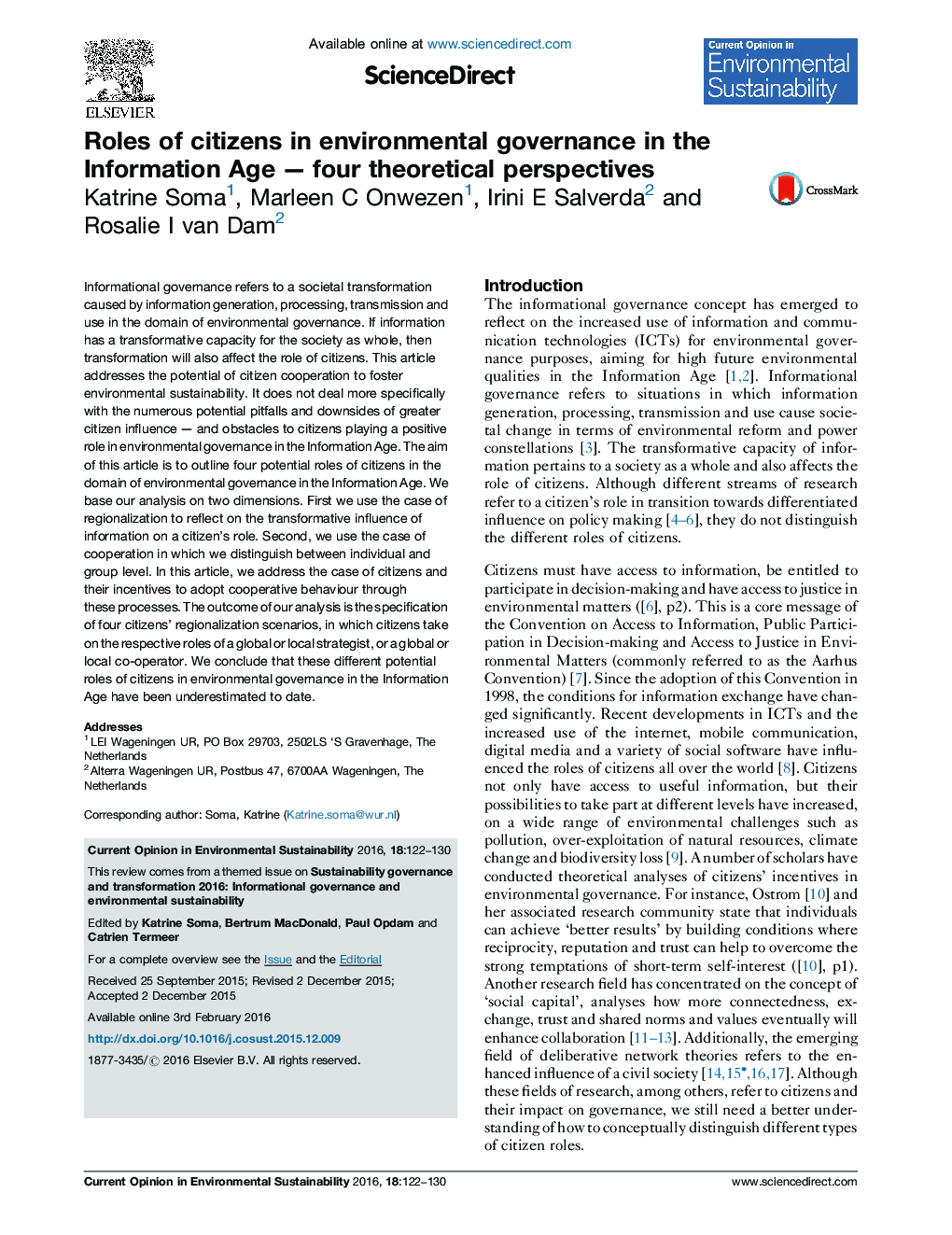| Article ID | Journal | Published Year | Pages | File Type |
|---|---|---|---|---|
| 7462509 | Current Opinion in Environmental Sustainability | 2016 | 9 Pages |
Abstract
Informational governance refers to a societal transformation caused by information generation, processing, transmission and use in the domain of environmental governance. If information has a transformative capacity for the society as whole, then transformation will also affect the role of citizens. This article addresses the potential of citizen cooperation to foster environmental sustainability. It does not deal more specifically with the numerous potential pitfalls and downsides of greater citizen influence - and obstacles to citizens playing a positive role in environmental governance in the Information Age. The aim of this article is to outline four potential roles of citizens in the domain of environmental governance in the Information Age. We base our analysis on two dimensions. First we use the case of regionalization to reflect on the transformative influence of information on a citizen's role. Second, we use the case of cooperation in which we distinguish between individual and group level. In this article, we address the case of citizens and their incentives to adopt cooperative behaviour through these processes. The outcome of our analysis is the specification of four citizens' regionalization scenarios, in which citizens take on the respective roles of a global or local strategist, or a global or local co-operator. We conclude that these different potential roles of citizens in environmental governance in the Information Age have been underestimated to date.
Related Topics
Physical Sciences and Engineering
Earth and Planetary Sciences
Earth and Planetary Sciences (General)
Authors
Katrine Soma, Marleen C Onwezen, Irini E Salverda, Rosalie I van Dam,
